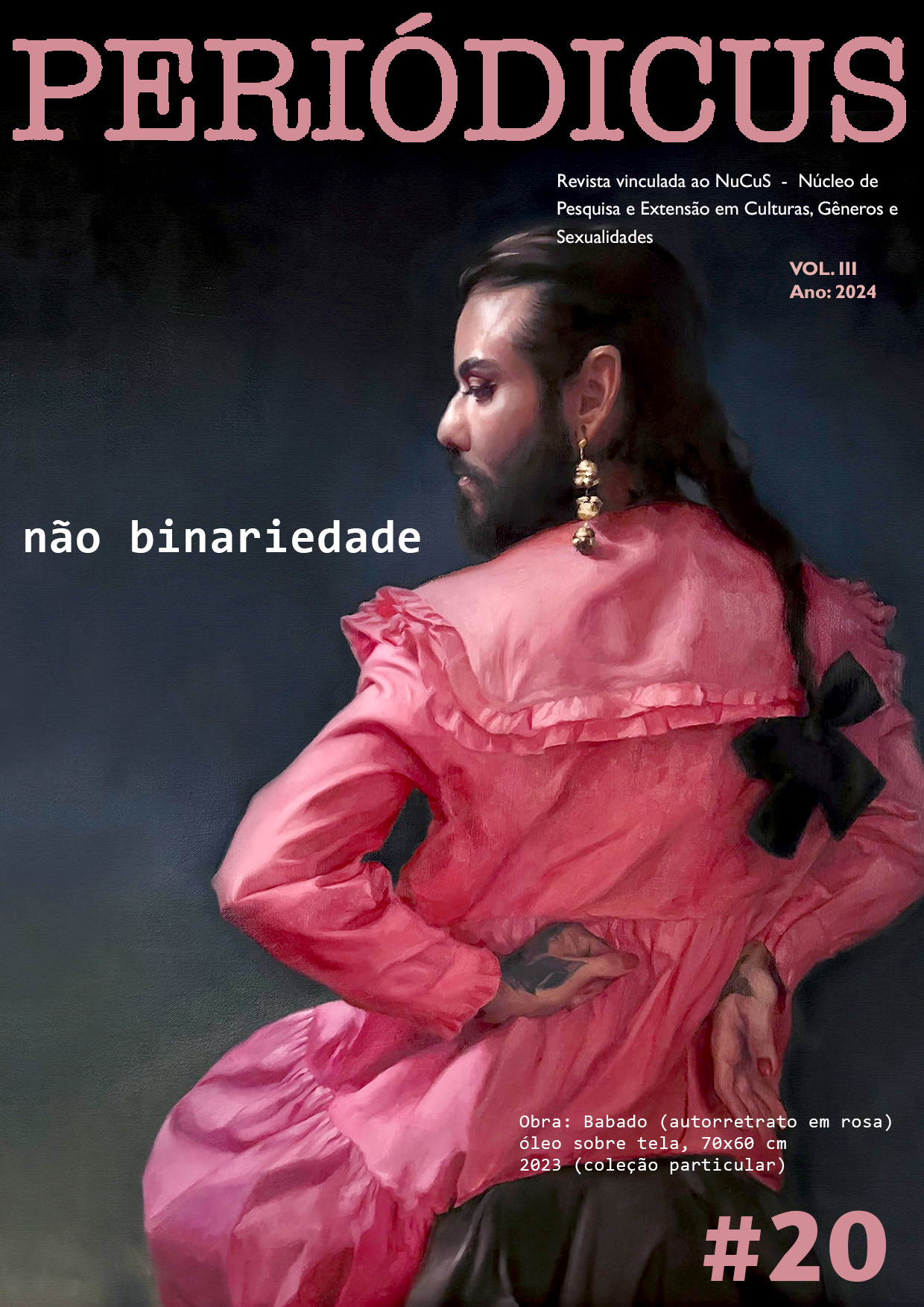Systematic review of gender relations and sexualities in Brazilian basic education, between 2001 and 2022
DOI:
https://doi.org/10.9771/peri.v3i20.56790Abstract
The present research problematized: “What are the themes dialogued by Brazilian scientific research regarding the relations of genders and sexualities in basic education?”. Our proposal was to contribute to the dialogues about the Studies of Genders and Sexualities, in the scope of Brazilian basic education, because we understand the need to promote debates about the diversity of genders and sexualities in Brazilian school institutions, as done by Louro (1997), Asinelli-Luz (2008), Silva (2010), Miskolci (2012), Butler (2016), Paraíso (2016), among others. Operationally, we conducted the systematic review research in three databases, namely: 1) Scielo; 2) BDTD; and 3) CAFe. The results showed that, between the years 2001 to 2022, 158 studies were published on the theme of genders and sexualities in basic education. These data were thematized for the purpose of systematizing them and performing their analysis. In the present article, we indicate, based on the citations and references, the researches that have been identified.
Downloads
Downloads
Published
How to Cite
Issue
Section
License
Copyright (c) 2024 Ramon de Oliveira Bieco Braga, Cesar Alves de Meira Filho, Araci Asinelli-Luz

This work is licensed under a Creative Commons Attribution-NonCommercial 4.0 International License.
Autores que publicam nesta revista concordam com os seguintes termos:
Autores mantêm os direitos autorais e concedem à revista o direito de primeira publicação, com o trabalho simultaneamente licenciado sob Licença Creative Commons Attribution Noncommercial que permite o compartilhamento do trabalho com reconhecimento da autoria e publicação inicial nesta revista, sendo vedado o uso com fins comerciais.
Autores têm autorização para assumir contratos adicionais separadamente, para distribuição não-exclusiva da versão do trabalho publicada nesta revista (ex.: publicar em repositório institucional ou como capítulo de livro), com reconhecimento de autoria e publicação inicial nesta revista.
Autores têm permissão e são estimulados a publicar e distribuir seu trabalho online (ex.: em repositórios institucionais ou na sua página pessoal) a qualquer ponto antes ou durante o processo editorial, já que isso pode gerar alterações produtivas, bem como aumentar o impacto e a citação do trabalho publicado (Veja O Efeito do Acesso Livre).







